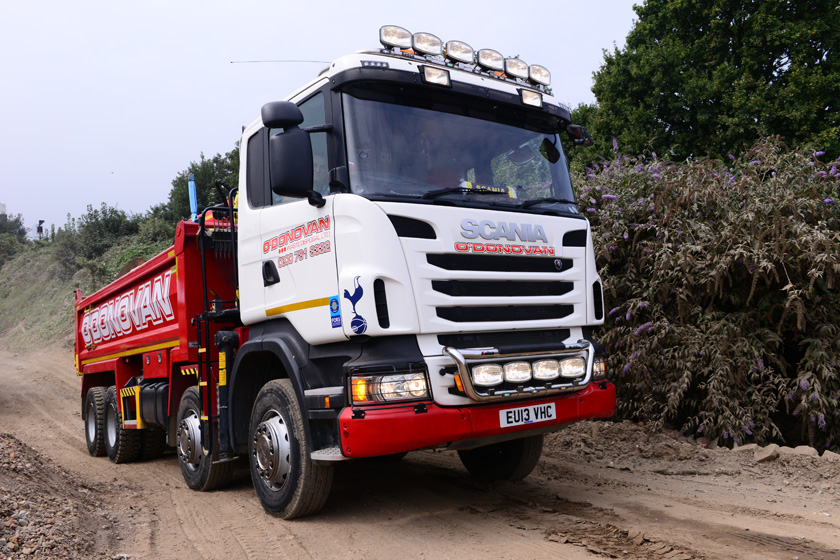As one of the very first CLOCS Champions, O’Donovan Waste Disposal attended the most recent Construction Logistics and Cycle Safety (CLOCS) working group meeting, held this month in central London, in order to review the latest on the standard and hear from groups involved in the progression of CLOCS.
Held bi-monthly, the ultimate aim of the working group is to take forward the recommendations of the CLOCS research. O’Donovan managing director, Jacqueline O’Donovan took part in September’s meeting which was, to date, the most well attended meeting, with over 60 people in attendance demonstrating the growing awareness of CLOCS and the willingness of all across the construction sector to engage with the vital issue of protecting vulnerable road users.
The latest meeting saw presentations from Future Thinking, an independent research company, High Speed 2 (HS2) and an overview of the CLOCS off-road ground conditions research.
Future Thinking were engaged by CLOCS earlier in 2015 to carry out an independent evaluation of around 20 newly designed HGVs, all of which were launched at the CLOCS progress event which took place in February. O’Donovan has trialled a number of these vehicles, including the Mercedes Benz Econic, as part of the review and Future Thinking has collected operator and driver feedback from all those who have taken part.
Findings thus far have shown that whilst generally many drivers are initially sceptical of the new style of high visibility vehicles, particularly in relation to the lowered driving position and whether the lorry is ‘up to the job’; it’s been recognised that the benefits of improved vision far outweigh any of the more negative aspects. Feedback from O’Donovan drivers has followed the same pattern in its trials of the Volvo FL818, the DAF FA LF220, the MAN TGM BB and the Mercedes Benz Econic skip loader.
Vehicle trials are due to conclude later this year and the results and findings will ultimately be utilised to help better inform industry and de-mystify the myths around whether these safer vehicles are suited to the job in hand.
The group were also presented with a review of how the CLOCS working group can help improve off-road ground conditions to enable safer vehicles to be used in construction programmes. Currently the majority of lorries are over-specified to conduct off-road operations which are a marginal aspect of a journey. Work has commenced into better understanding how vehicles can be used which are more fit for the road, and to minimise the need for off-road driving.
HS2 provided an overview of its Construction Code of Practice and the road safety requirements it is proposing to apply through its contracts. Whilst O’Donovan and the rest of the working group welcomed that HS2 is engaged in the aim of making roads safer for vulnerable road users, it was felt that consistency is necessary. Jacqueline O’Donovan commented: “It’s vital that all construction clients are consistent with the CLOCS standard to ensure that there is a clear understanding of what is required from both operators and clients alike. It was extremely positive to see HS2 at our recent meeting and we understand that their code of practice is currently under development, so we hope that this engagement with CLOCS will help inform HS2 moving forwards to continue to provide a common, recognised standard for all.”
The next revision of the CLOCS standard is due in December to which there have been no material changes. However significant improvements have been made to remove ambiguity and make information better available. CLOCS Champions, both existing and new have also produced case studies on their experiences to help inform and engage new Champions and clients.
As an SME operator and one of the very few SMEs involved with CLOCS, O’Donovan is keen to encourage other operators to raise their profile and engage with the CLOCS standard.












